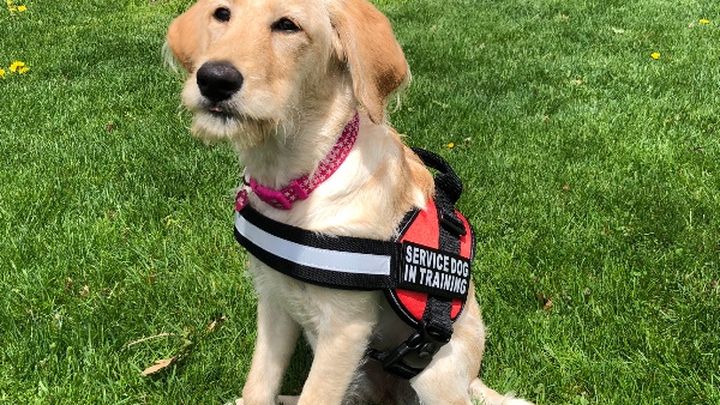
Matthew Marciano Service Dog
Donation protected






 My family is fundraising on behalf of my son Matthew Marciano who has autism and is nonverbal. We are raising money to train our Labradoodle Chloe to be Matthews service dog and the training cost $5,000.
My family is fundraising on behalf of my son Matthew Marciano who has autism and is nonverbal. We are raising money to train our Labradoodle Chloe to be Matthews service dog and the training cost $5,000. This is something we know would really help Matthew but unfortunately cannot afford to find ourselves.
We will be working with Jenny from DogSmartz in Poland for the training.
Any amount would be very much appreciated!!
Here are some of the things that the service dog will be trained to do for Matthew:
Self-stimulation Will signal behavior to handler, handler may choose to stop (potentially harmful)
Self harming Will interrupt behavior
Overstimulation/meltdown/shutdown Deep pressure tasks: step on foot, paws on lap, lie on handler
Disorientation Find the car, go home, find other specified places
Auditory scene analysis Alert to important sounds
Visual processing problems Guide work - steer around obstacles
Social: An ASD child’s positive response to their service dog improves their social interaction. The ASD child communicates with the dog often, talking to him and eventually learning to provide voice commands. Communication with adults, siblings and peers improves dramatically, and eye contact increases as a direct result. The interaction with an autism service dog also expands the child’s attention span and interest in activities.
Behavior: A child with an autism service dog tends to be more at ease in her environment. The therapeutic effect is shown to lessen the frequency and severity of behavior disruptions such as aggression, temper tantrums and meltdowns. Autism dogs are trained to stop the child from self-stimulation, self-harm, eating nonfood items and repetitious behavior. The dog will nudge, kiss, cuddle and calm the child to channel the behavior elsewhere.
Safety: In public places, the child and dog are usually tethered together by a belt. The ASD child has a certain amount of autonomy, but should she wander from the adult, the dog provides an anchor. Most autism service dogs are trained to lie or sit if the child separates from her guardian, making continuous movement difficult for the child. Should the child become detached from the dog, the service animal is trained to track by scent detection. Autism service dogs also provide sight and hearing assistance in the event that sensory input is compromised.
Organizer
Tracy Workman Marciano
Organizer
Campbell, OH


